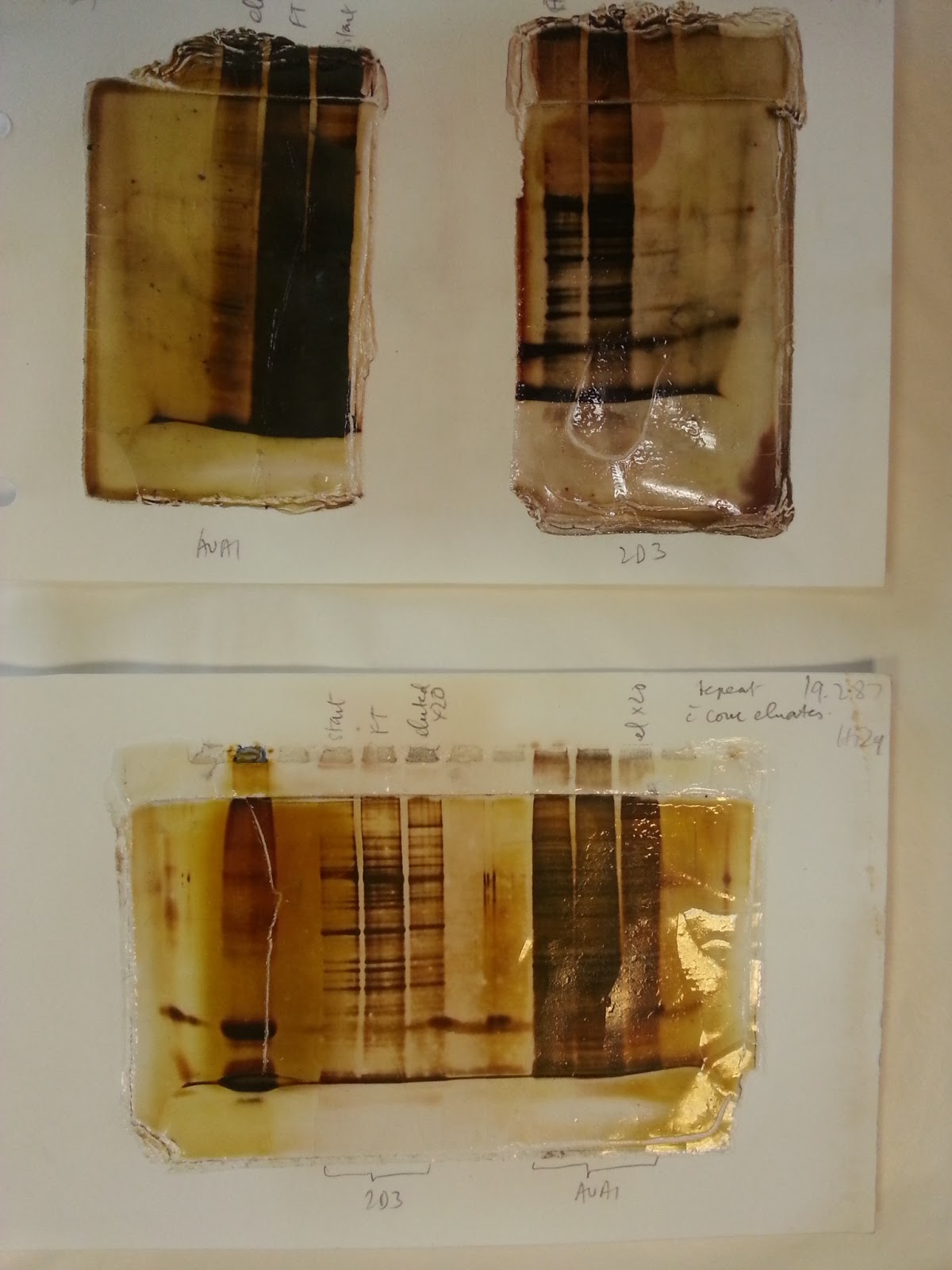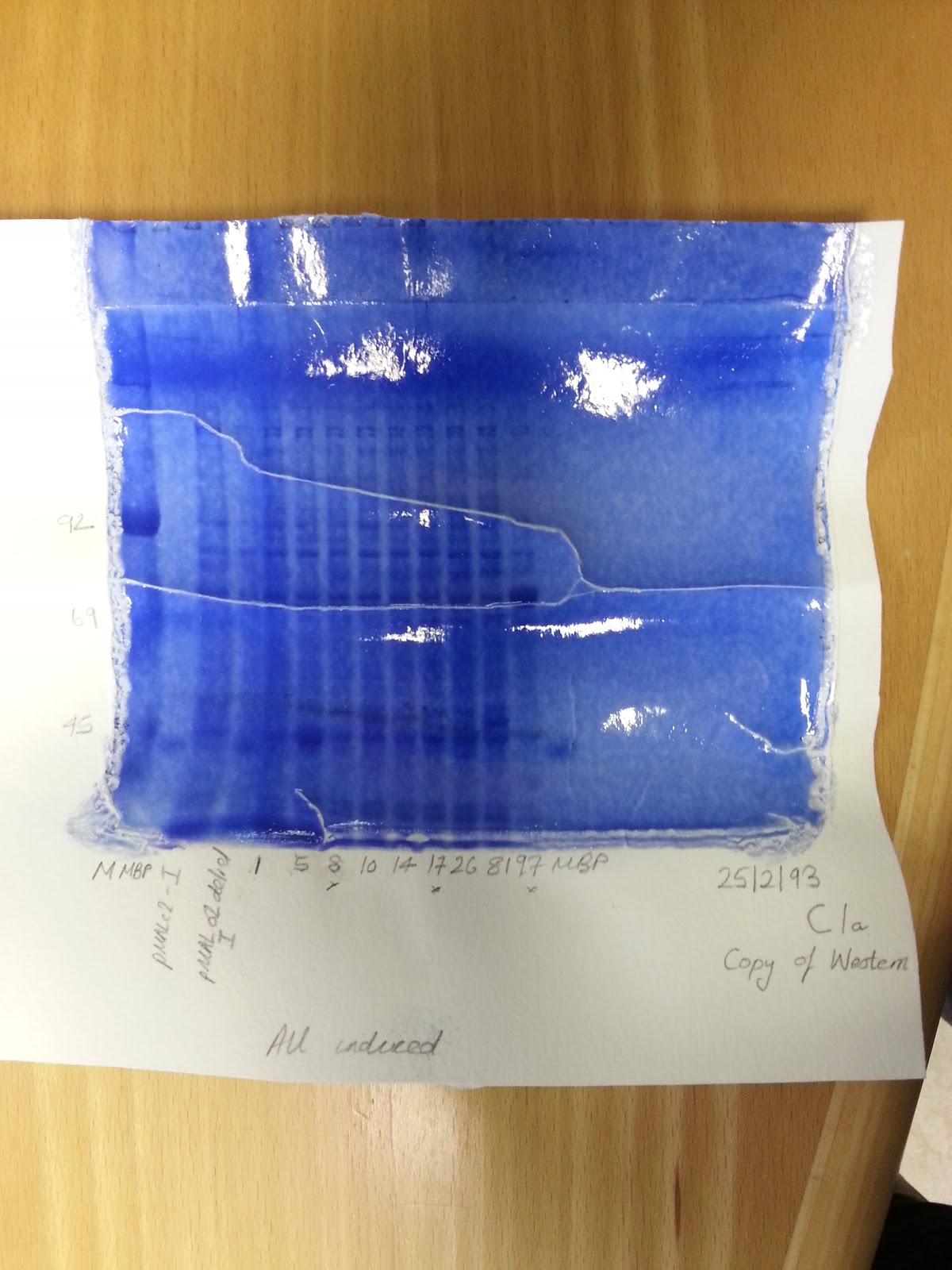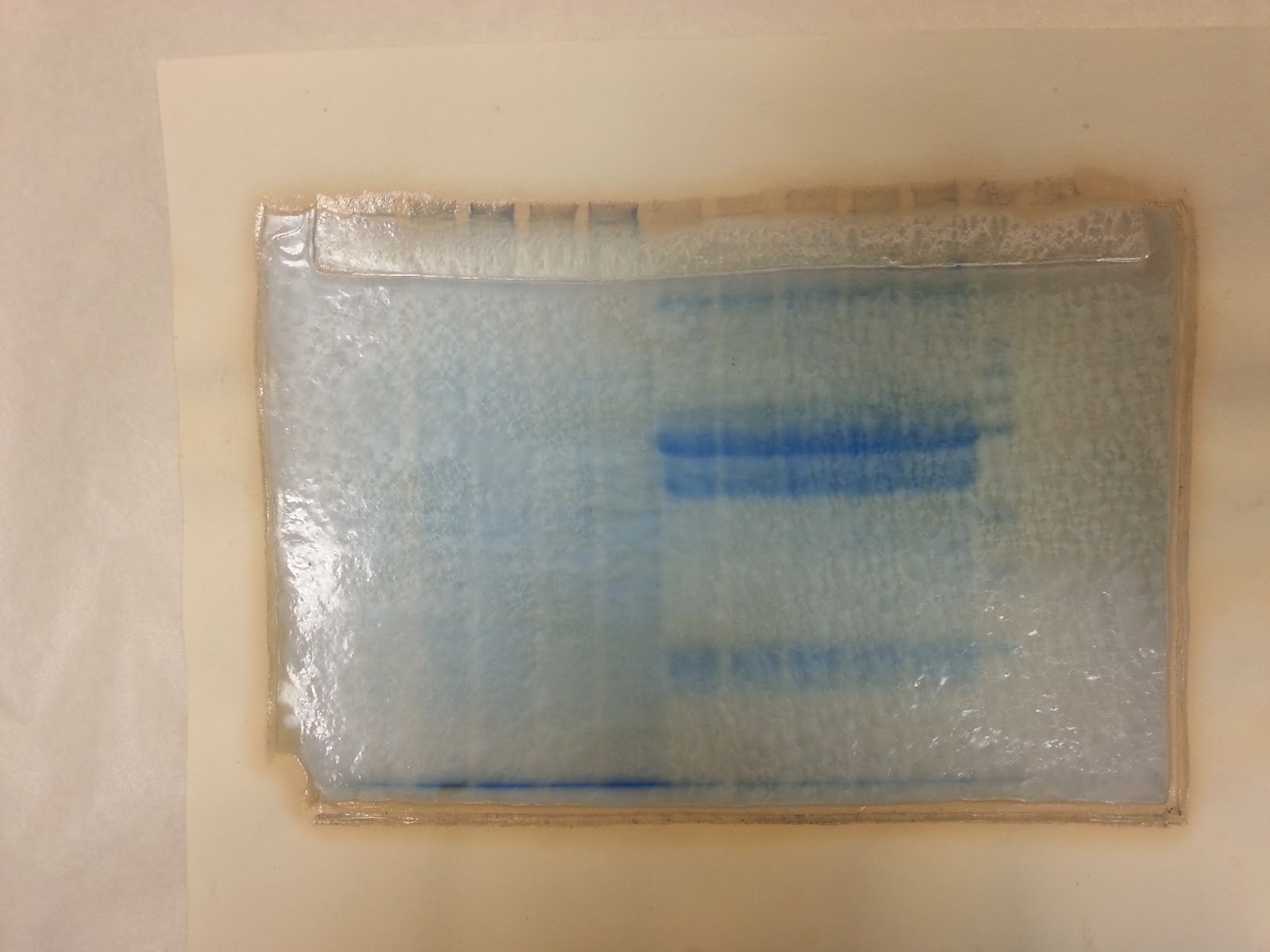Sir Walter and Lady Julia Bodmer’s archive covers nearly all aspects of their research careers as geneticists. While it is often the case that scientists discard research papers (or delete digital files) such as laboratory notes and datasets once the scientific conclusion results in published output, Sir Walter has been careful to retain every step of the research process leading up to publication. The archive includes sequencing and other experimental data sets, punch cards, lab notes and log books, multiple drafts of scientific papers and grant applications. Importantly, the more informal aspects of the research process have also been kept, adding a real human dimension to the archive. The correspondence, casual memos, jottings and annotations on reprints and lab notes encapsulate the ideas and observations, not to mention the frustrations endured throughout the research process, and ultimately, the thrill of scientific discovery.
 |
| Sir Walter Bodmer c.1977 |
For this post I thought it would be useful to share some examples of the experimental materials enclosed in many of the lab notebooks. The archive comprises an impressive amount of lab work making up around a third of the full archive, which totals over 2000 boxes. This also includes the notebooks of collaborators and junior research staff working in various labs headed by the Bodmer’s in Oxford, Stanford and the Imperial Cancer Research Fund (now Cancer Research UK) in London.
The collection’s research sequences include Sir Walter’s early genetics work on Aspergillus and Neurospora, which he carried out as a postgraduate student at Cambridge University during the 1950s and until he went to Stanford in the 1960s. This covers molecular genetics experiments on DNA transformation in Bacillus subtilis, and work on human lymphocyte antigens. From the Genetics Laboratory at Oxford University research notebooks cover a variety of experiments throughout the 1970s, including those relating to HLA determinants on somatic cell hybrids. There are nearly 200 boxes alone containing lab notes from Julia Bodmer’s ICRF Tissue Antigen Laboratory including work on the production of monoclonal antibodies, in particular, DR antigens. There are also a similar number of boxes relating to colorectal cancer research carried out in Sir Walter’s Director’s Laboratory at the ICRF. Many of these papers offer a window into the development of techniques and methodologies used for work on extracting proteins and DNA.
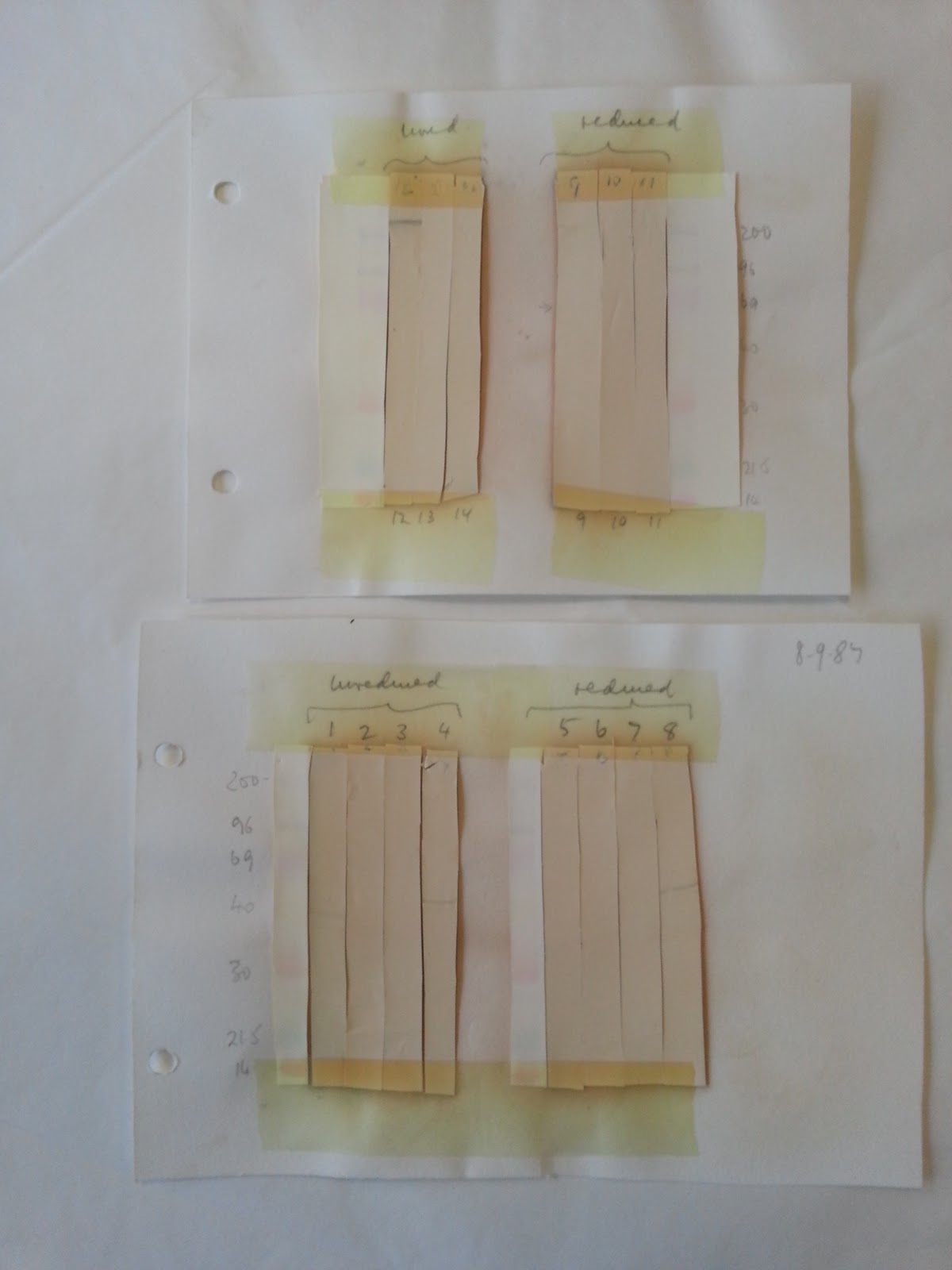 |
| Lab work relating to polyclonal screening of colorectal cancer cell lines |
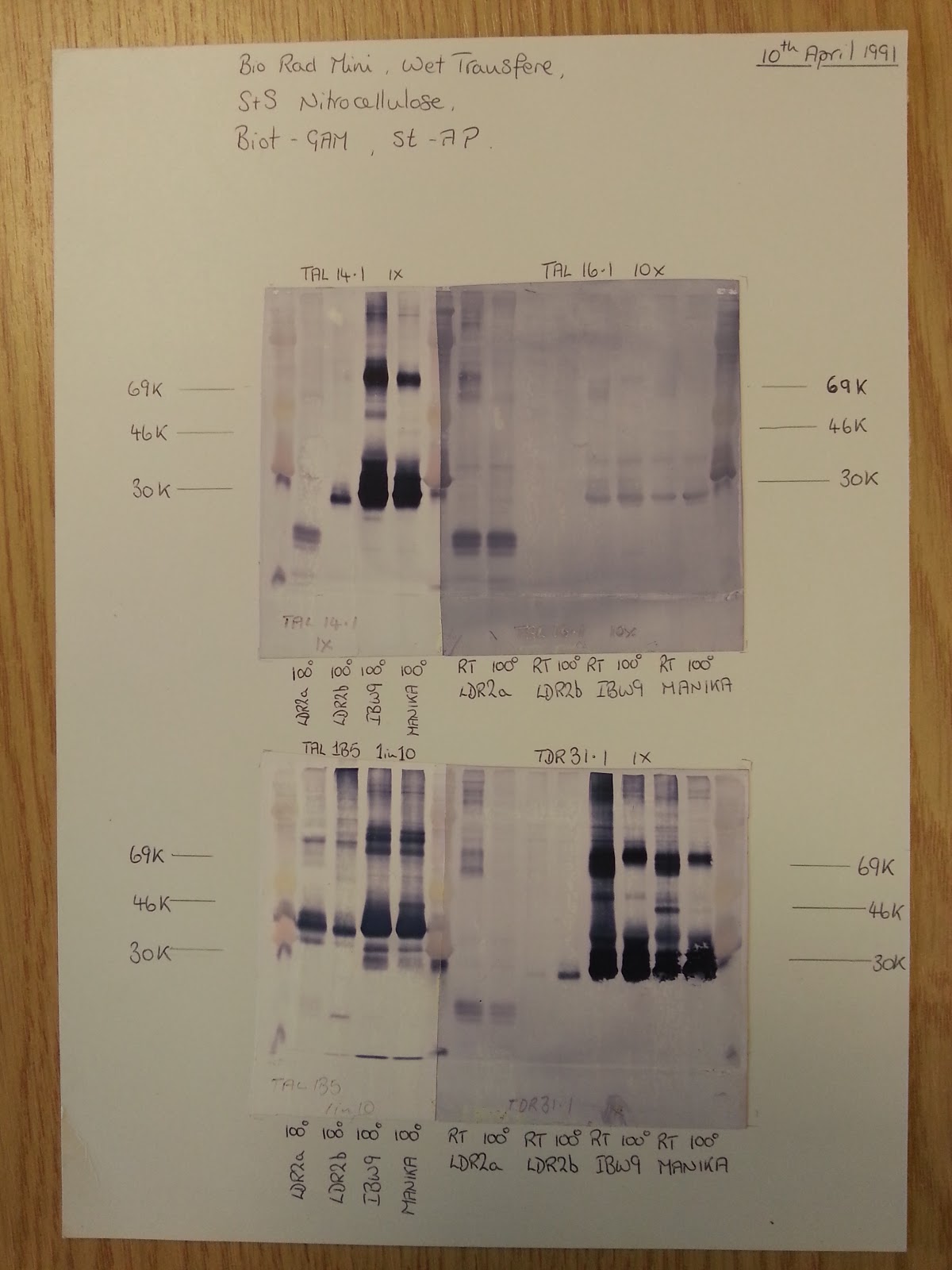 |
| Immunodetection using Amersham ECL Western blotting kit (immunodetection uses antibodies to detect the presence of specific antigens) |
Importantly, the majority of the collection has been retained (by the Bodmers and now archivist) within its original order and context. For a non-scientist archivist, the abundance of explanatory documentation that exists with the laboratory papers has proved invaluable for contextualisation, and will also add to the collection’s historical value.

